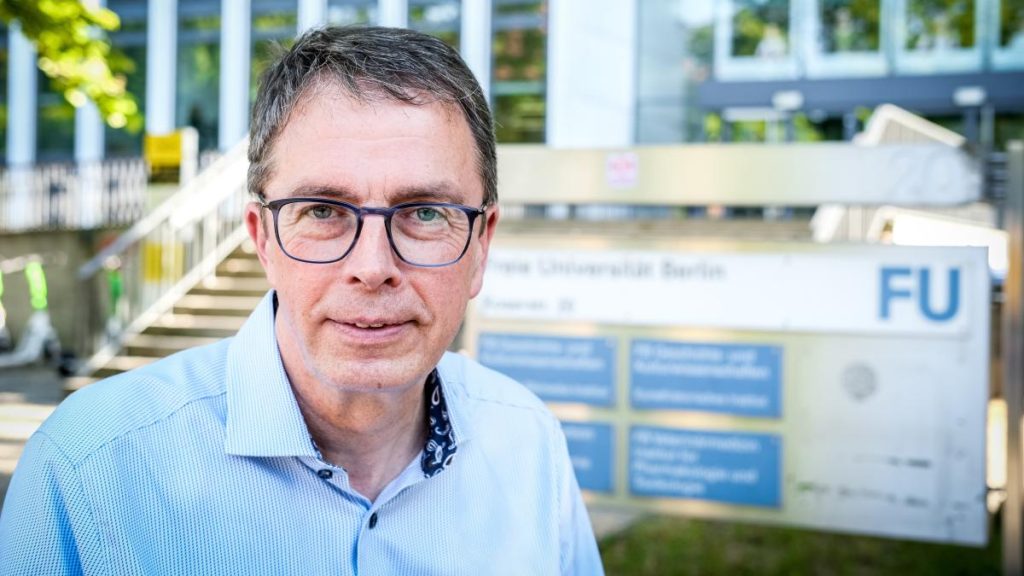Paul Nolte, a 61-year-old professor of Modern and Contemporary History at the Friedrich-Meinecke-Institut of the Free University (FU) Berlin, recently experienced a propalestinian protest at his university. When students attempted to occupy the university in protest against Israel, Nolte was asked to halt his lecture by security personnel to prevent the occupation of the lecture hall. The protest featured activists chanting slogans, some wearing masks and Palestinian scarves, engaged in a calculated disruption of the normal proceedings.
The group sought to establish a “Camp” in opposition to Israel’s actions in Gaza, following a trend seen in campus protests in the United States. Nolte observes a growing separation between performers and spectators in protest culture, resembling theatrical performances seen in political art actions. The extreme and aggressive nature of the protest, including calls for violence against Israel and Jews, isolates the protestors from their surroundings, focusing on overpowering through noise rather than engaging in dialogue.
Reflecting on historical forms of civil disobedience such as the black civil rights movement in the USA, Nolte highlights the shift towards more aggressive and disruptive tactics in recent protests. While the civil rights movement initially relied on legal challenges, later tactics under Martin Luther King involved civil disobedience to challenge segregation laws. The occupation of lecture halls, while symbolic, represents a more confrontational approach that pushes boundaries.
The use of provocative slogans such as calling for an “Intifada” or a “free” Palestine from the Mediterranean to the Jordan River crosses a line into anti-Israel or even antisemitic territory, according to Nolte. Such rhetoric veers into incitement to hatred and violence, justifying the police intervention to dismantle the protest camp. Despite criticism from over 1000 university staff supporting peaceful protests, Nolte argues that the protection of free speech and the rule of law must prevail over ideological sympathies.
Nolte notes a concerning trend among certain academic disciplines, particularly in Arab and Islamic studies, where a skewed understanding of these protests is evident. Influenced by postcolonial theories and personal sympathies, some scholars may overlook the inflammatory and dangerous nature of the protest slogans. Nolte emphasizes the importance of standing firm against such shifts in discourse, as seen in instances where international guests refuse to share platforms with Israelis due to political reasons.
The prevalence of postcolonial narratives in academic environments, such as seen in the US, threatens to overshadow nuanced historical perspectives on Israel and the Middle East. Nolte highlights the need for vigilance in countering these narratives that may downplay or ignore important historical contexts, leading to a skewed understanding of complex geopolitical issues. Ultimately, the defense of democratic values and free speech must prevail over dogmatic ideologies or misplaced sympathies in the academic sphere to ensure a fair and informed debate.


